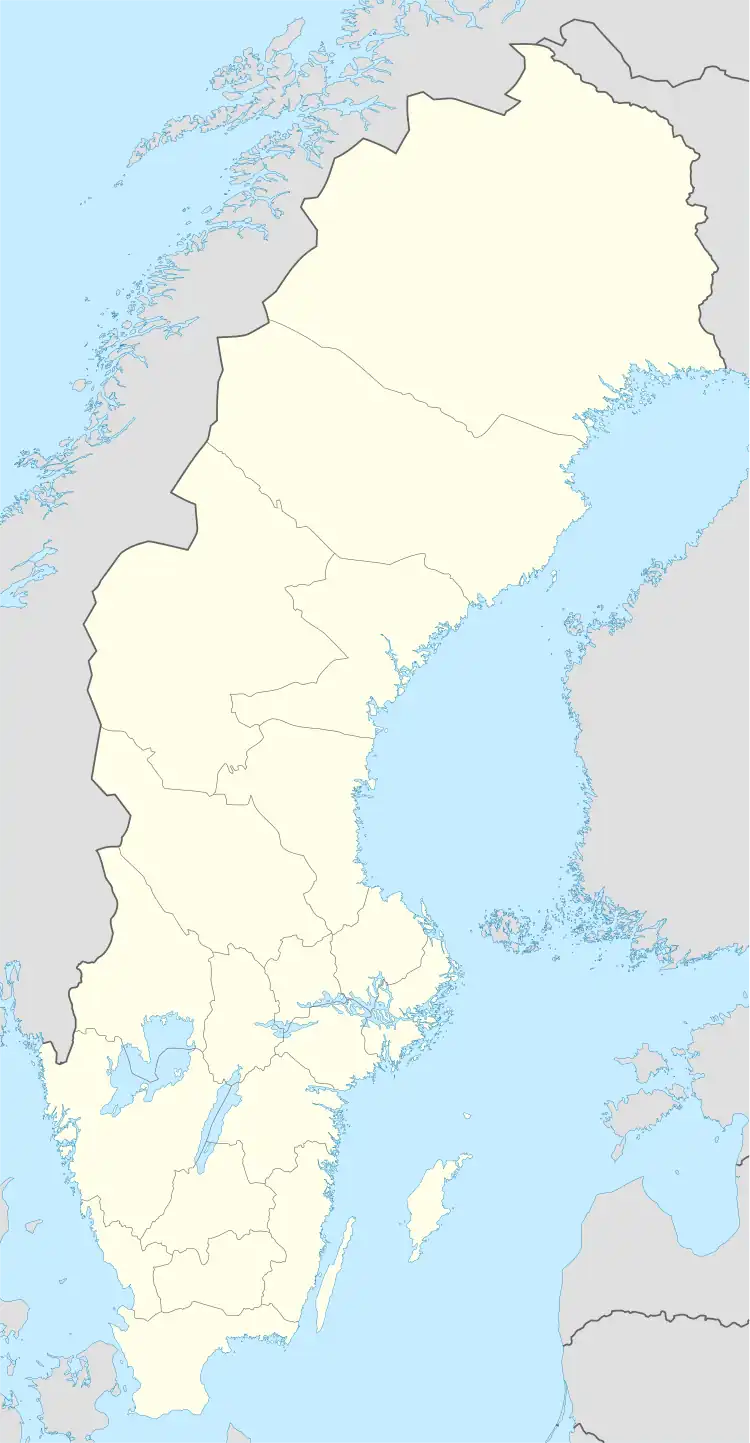Härsbacka mine
Härsbacka mine (Swedish: Härsbacka gruva) is a quartz and feldspar mine. It was once Sweden's foremost quartz mine.[2] The mine was closed in 1946.[1][2] The quartz and feldspar mined in Härsbacka are the main constituent of a large pegmatite dyke.[2] This pegmatite dyke dips about 60 to 70° to the southeast and has a maximum thickness of 37 m.[2] While quartz and feldspar are mostly mixed, pure zones of either occur.[2] Most feldspar is pink microclineperthite and much lesser amounts are white oligoclase.[2] There are lesser quantities of biotite, garnet, molybdenite and fluorite.[2] About 230,000 tons of quartz have been mined in total from Härsbacka mine.[2]
| Location | |
|---|---|
 Härsbacka mine Location in Sweden | |
| Municipality | Österåker |
| Country | Sweden |
| Coordinates | 59°28′49.43″N 18°23′18.78″E |
| Production | |
| Products | Quartz, feldspar |
| History | |
| Opened | 1895[1] |
| Closed | 1946[1] |
In 1947 the mine was bought by Statens Vattenfallverk to turn it into an oil storage depot and it functioned as such until 1985 when it was emptied.[2] Since 1997 the mine is fully flooded by groundwater.[1] In 2021 the Geological Survey of Sweden was tasked with investigating contaminants in the mine.[1]
References
- "Härsbackagruvan". SGU (in Swedish). 2021-11-02. Retrieved 2022-07-23.
- Lundegårdh, Per H. (1971). Nyttosten i Sverige (in Swedish). Stockholm: Almqvist & Wiksell. p. 19.